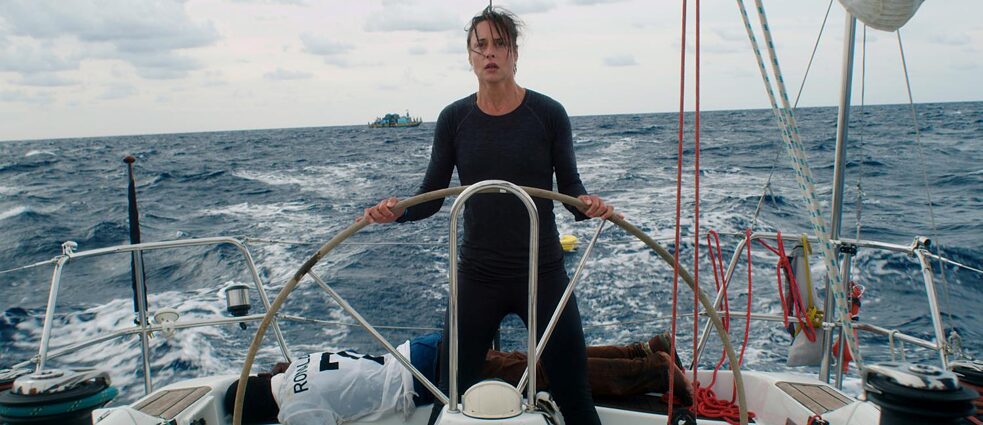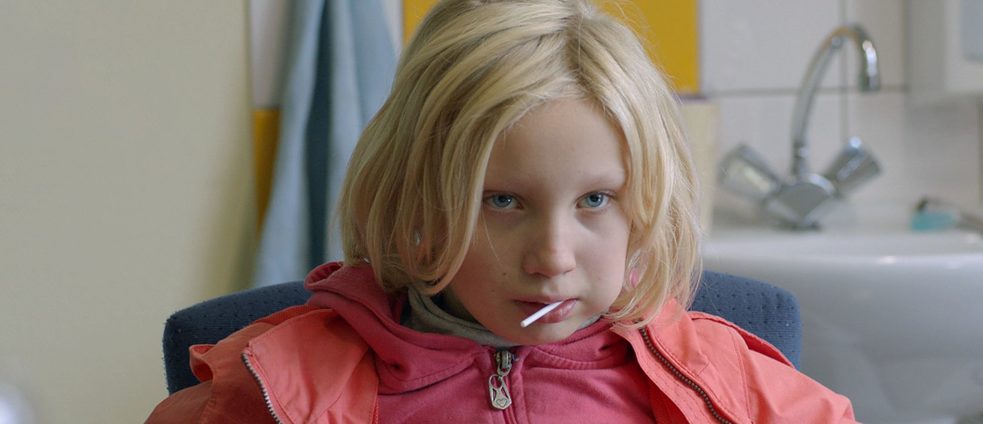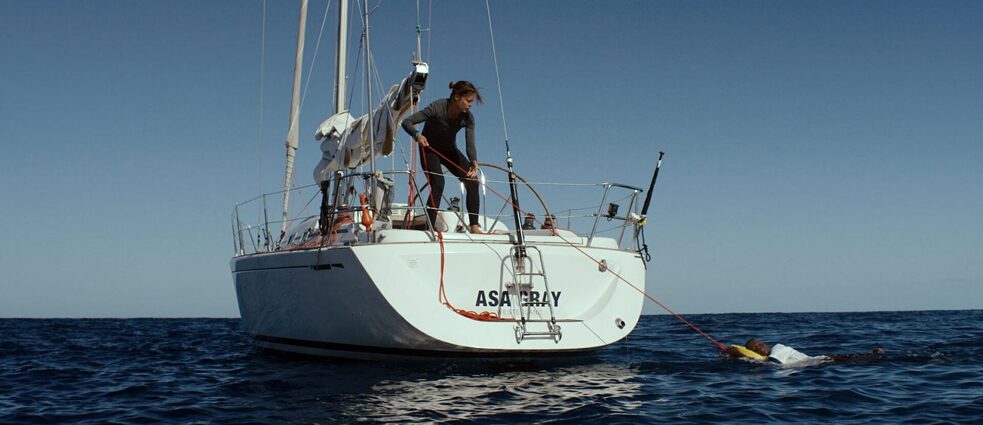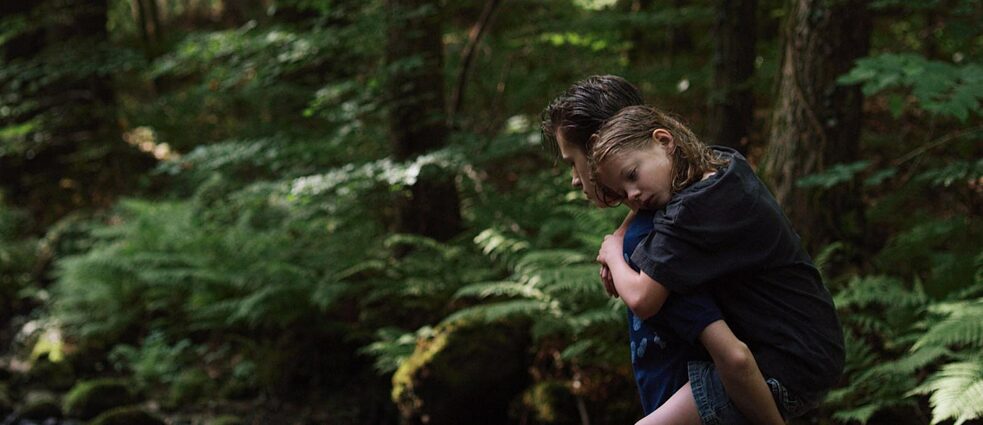End of year retrospective
2019: The year in German cinema

From grim serial killer films and expressive, Oscar-submitted dramas to survivalist thrillers and box office hits, the end of the year is a good time look back on 2019’s German cinema slate.
By Sarah Ward
During the 2019 Berlinale, the streets of Potsdamer Platz were littered with pictures of Jonas Dassler’s bloated and crumpled face. It was impossible to avoid, so prominent were the posters for one of the three big German contenders in the film festival’s competition, with seemingly every street corner emblazoned with advertising for Fatih Akin’s The Golden Glove.
The image itself — a mugshot-like portrait of a sinister-looking man with an unnerving stare, as set against a blood-red background — stands out by design. The film, focusing on notorious German serial killer Fritz Honka, does too. Grim, brutal and designed to shock, it’s not easy to watch. It intrigues in demonstrating how depravity thrives so easily and preys so effortlessly, and it’s well-constructed even at its most punishing, but it’s also exhaustingly, gleefully relentless in its grotesqueness. That applies visually, thematically and emotionally, as you might expect of a movie that hones its focus in intimate detail on a remorseless murderer who mercilessly murders women.
Still, The Golden Glove lingers in the mind. That’s not a pleasant experience either, but it does speak of a film with visceral power. And, while it by no means ranks among 2019’s best German features, those that do earn that honour share the same trait.
 System Crasher stars Helena Zengel in the lead role | © System Crasher
System Crasher stars Helena Zengel in the lead role | © System Crasher
EMPATHY BY IMMERSION
Also premiering in competition at the Berlinale, Nora Fingscheidt’s System Crasher surveys the world through nine-year-old Benni’s (Helena Zengel) eyes. The child is a force of nature with the temper and tantrums to prove it, so the film shares her wild streak. She bounces off of everything around her, often literally — and, to convey her turmoil and pain, the feature visually takes her lead. The result trades in empathy by immersion; feeling for anyone raised amidst such instability is a natural reaction, but understanding why Benni behaves the way she does, and how her institutionalised upbringing has let her down, is a much trickier feat.Marking her feature debut, Fingscheidt achieves that task — and, in the minds of the German jury to select the country’s 2020 submission for the Academy Awards’ best international feature film, she also made Germany’s best awards contender. System Crasher was chosen from a group of seven, including Marco Kreuzpaintner’s The Collini Case, Caroline Link’s All About Me, Christian Schwochow’s The German Lesson, Thomas Heise’s Heimat is a Space in Time, Jan Ole Gerster’s Lara and Bernd Bohlich’s Sealed Lips. Alas, that’s as far as it will get, with the film absent from the ten-title Oscar shortlist, from which the final five nominees will be chosen.
 A scene from German-Austrian co-production "Styx" | © Styx
A scene from German-Austrian co-production "Styx" | © Styx
AN IMPASSIONED SURVIVALIST TALE
Styx, a German-Austrian co-production, bowed at the Berlinale in 2018, but it started gaining broader global attention in 2019. Whichever year it is ascribed to, the feature remains a standout — which is why the world started taking notice. The survivalist thriller’s highly topical nature also helps, adding a crucial point of difference to the Robert Redford-starring All Is Lost while tapping into a subject of ongoing and international relevance. Some filmmakers explore the plight of asylum seekers through activism-focused documentaries, as Ai Weiwei has in both 2017’s Human Flow and 2019’s The Rest. Others, like Wolfgang Fischer here, spin their struggles into tense dramas.So it is that Styx heads to sea with trauma doctor Rike (Susanne Wolff). She sets off solo, using her break from attending to streetside emergencies to achieve a lifelong dream: sailing single-handedly from Gibraltar to Ascension Island. Fischer gives Rike’s journey a jittery, urgent feel from the outset, but the film ramps that sensation up several notches when she awakes one morning to spy a damaged, overloaded refugee boat nearby. When she radios for help, she discovers how cruelty trumps humanity among the bureaucratic. Styx does what the best survivalist films do, finding an existential thread in one person’s journey; however it also engages deeply with the state of the world today.
 Angela Schanelec directed the cryptic but rewarding film "I was at Home, But" | © "I was at Home, But"
Angela Schanelec directed the cryptic but rewarding film "I was at Home, But" | © "I was at Home, But"
A WIDE ARRAY
2019’s German film cohort also spanned Angela Schanelec’s cryptic but rewarding I Was at Home, But, the neon-hued but routine underworld antics of O, Beautiful Night and the intimate character study that is Ms Stern, three films that boast little in common except their country of origin. The ever-prolific Werner Herzog’s two documentaries this year also revel in diversity, with one framed around a chat with ex-Russian leader Mikhail Gorbachev and the other trekking around the world to pay tribute to writer Bruce Chatwin.At the German box office, only two homegrown titles cracked the top ten (or the top 20). One, Das perfekte Geheimnis, is a German remake of 2016 Italian hit Perfect Strangers. Set at a dinner party, with attendees agreeing to share their incoming texts and calls with the group, it’s the latest in a series of country-specific remakes of the same premise, joining versions in Spain, Turkey, France, South Korea, Hungary, Mexico, China, Russia and Poland.
The second big local ticket-seller, All About Me, was released on Christmas Day in 2018, but continued to strike a chord throughout 2019. That’s largely a result of its subject matter, stepping through the childhood of beloved German comedian and TV presenter Hape Kerkeling. Of course, they do have one commonality: like all of 2019’s German film slate, they showcase the country’s ongoing cinematic diversity.